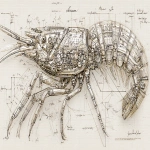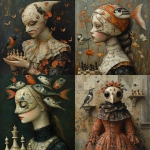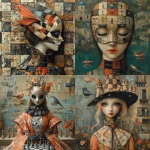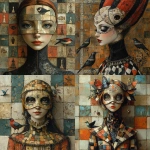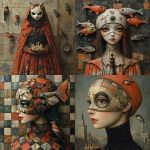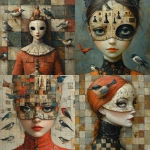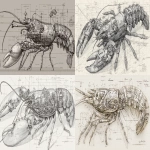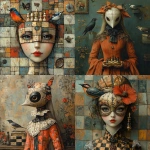Explore the Best AI Image Gallery
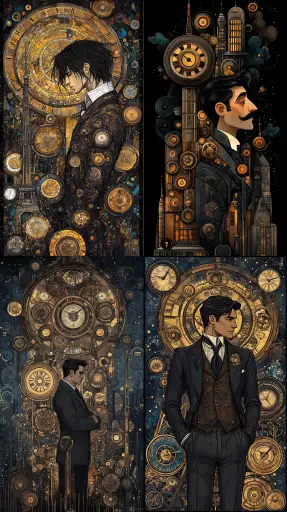
Quantum Creativity: Where Innovation Meets Imagination
The realm of creativity is poised for a radical transformation, driven by the burgeoning field of quantum computing. This revolutionary technology, harnessing the enigmatic principles of quantum mechanics, promises to unlock unprecedented possibilities for artists, designers, and innovators across various disciplines.
From generating stunningly intricate visual art to composing captivating musical pieces, quantum computing is poised to reshape the very fabric of creative expression. Lets delve into the fascinating intersection of quantum technology and the creative industry, exploring its transformative potential, practical applications, and the ethical considerations that accompany this paradigm shift.
Quantum Art: A New Dimension of Artistic Expression
Imagine algorithms capable of generating abstract paintings that defy human comprehension, or composing symphonies with intricate harmonies never before conceived. Quantum computers, with their ability to explore vast solution spaces simultaneously, can empower artists to create works of art that transcend the limitations of traditional mediums.
- Generative Art: Quantum algorithms can be trained on massive datasets of art styles and techniques, enabling them to generate unique and innovative artworks in various forms, from paintings and sculptures to digital installations.
- Interactive Art Experiences: Quantum computing can power immersive and interactive art experiences where viewers actions influence the evolution of the artwork in real-time, blurring the lines between observer and participant.
- Personalized Art Creation: Algorithms can analyze individual preferences and tastes to generate customized artworks tailored to specific users, fostering a deeper connection between art and its audience.
Quantum Design: Reimagining Product Innovation
The realm of design is also ripe for quantum-driven innovation. From optimizing product structures to crafting innovative user experiences, quantum computing can empower designers to create products that are more efficient, sustainable, and aesthetically pleasing.
- Materials Science: Quantum simulations can help designers explore the properties of new materials at a molecular level, leading to the development of stronger, lighter, and more durable materials for various applications.
- Product Optimization: By analyzing complex data sets, quantum algorithms can identify optimal designs that minimize material usage, production costs, and environmental impact.
- User Experience Design: Quantum computing can enable the creation of truly personalized user experiences by tailoring interfaces and functionalities to individual preferences and behaviors.
Ethical Considerations in Quantum Creativity
As with any powerful technology, quantum computing raises important ethical considerations that must be carefully addressed.
- Ownership and Copyright: Who owns the copyright to artworks generated by quantum algorithms? How do we address intellectual property rights in a world where machines can create art?
- Bias and Fairness: Quantum algorithms are trained on data, which can reflect existing societal biases. Its crucial to ensure that quantum-powered creative tools do not perpetuate or amplify these biases.
- Access and Equity: The benefits of quantum creativity should be accessible to all, not just a select few. We need to strive for equitable access to this transformative technology.
Future Trends: Quantum Creativity Evolves
The future of quantum creativity is brimming with possibilities.
- Quantum-Enhanced VR/AR Experiences: Immersive virtual and augmented reality experiences powered by quantum computing will create entirely new realms of artistic expression and interactive storytelling.
- Personalized Music Composition: Quantum algorithms will be able to analyze individual preferences and generate unique musical pieces tailored to specific moods, tastes, and even physiological responses.
- Quantum-Driven Design Education: Educational institutions will integrate quantum computing into design curricula, empowering the next generation of creators with the tools to harness this transformative technology.
As we stand on the cusp of a quantum revolution, its essential to embrace its potential while navigating the ethical complexities. By fostering collaboration between technologists, artists, and policymakers, we can ensure that quantum creativity becomes a force for good, enriching our lives and expanding the boundaries of human imagination.
](https://images.ai-img.art/thumbnails/150/2d4ea5195083ca7b2d3b582e81252dd22f60af65e47d2869b902779447aef5b6.webp)






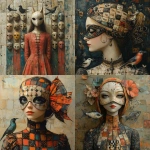

](https://images.ai-img.art/thumbnails/150/e30ebd22be803c7de05fcb5dd6652965dec130df7d6574e7ca3a8591dbce8f2a.webp)
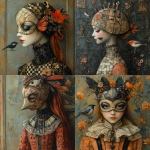
](https://images.ai-img.art/thumbnails/150/6b5ff04e6006f3b97dd36eaec548e34255713276a4bf8dc9fd72dc11b7313f39.webp)

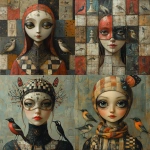

](https://images.ai-img.art/thumbnails/150/3214e988d4008f30c5a037acca1b4351055bd6ec65df0884fcdccd09d46c748c.webp)








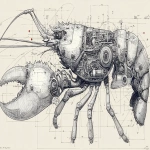
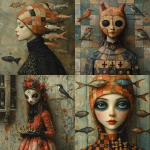
](https://images.ai-img.art/thumbnails/150/bce9cceb80b7d5238edfa28ed5e3a2be25fb5d8ca48c96f4d1a07205c5b15b4a.webp)

](https://images.ai-img.art/thumbnails/150/de2c068895a12730e04e9ae6ff88098cad56c69fe790f7696fde12227d56450b.webp)

](https://images.ai-img.art/thumbnails/150/005584f3955a233f0b74db7d02caa6d62f861640781eac80962d9b1631f410d0.webp)
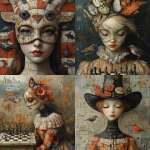
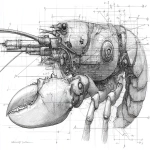
](https://images.ai-img.art/thumbnails/150/eef24b73be7aff90887fa84e17197f8779e355efee60a78764ddc04a3c05ead1.webp)
